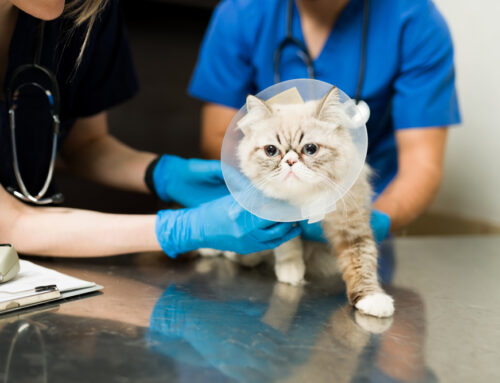A veterinary professional’s heart, which always pushes them to deliver the best, most compassionate care to pets and their owners, is their biggest asset. However, this huge heart also can be their downfall. To help support your veterinary team through the ups and downs of veterinary medicine, learn what plagues our industry today, and how you can help make our jobs emotionally easier.
Problems plaguing the veterinary industry
While every industry has its fair share of difficulties, the veterinary industry has been struck with serious problems that were exacerbated during the COVID-19 pandemic. Some of the most common issues facing veterinary professionals include:
- Staffing shortages — Perhaps one of the most severe problems facing the veterinary industry today is the lack of credentialed professionals in the workforce. Veterinarians and credentialed veterinary technicians are leaving the industry faster than new graduates can be trained, and non-credentialed support staff positions also often cannot be filled, leaving a skeleton crew to handle an overpacked appointment schedule. Veterinary hospitals today rarely boast a full team.
- Burnout and compassion fatigue — The same traits that make veterinary professionals so capable and caring also leave them vulnerable to burnout and compassion fatigue. Burnout occurs when a person is overwhelmed and left drained by the physical and mental stressors of their job, while compassion fatigue stems from an overcommitment to alleviating suffering in pets. Veterinary professionals are constantly faced with pets and owners in distress, and can develop compassion fatigue, which is considered a form of secondary post-traumatic stress disorder, and leaves them unable to empathize. Both these conditions result in serious mental, emotional, and physical health issues.
- Student debt — The debt-to-earning potential ratio is severely off-balance in veterinary medicine. Veterinarians often accrue hundreds of thousands of dollars in student loan debt that can take decades to pay off and linger over their financial wellbeing.
- Inadequate compensation — The amount of knowledge and skill that a veterinary professional requires far surpasses their salary. The veterinary industry is woefully underpaid, despite the fact that professionals encompass many human medicine roles at once. For example, your veterinarian is a pediatrician, surgeon, radiologist, and much more, while your veterinary technician is an anesthesiologist, phlebotomist, and laboratory technician, plus countless other roles.
- Physical and mental stress — The stressors that come with handling and restraining frightened pets frequently take a serious mental and physical toll. Terminal diagnoses, euthanasias, and upset pet owners, paired with an inability to “fix” something, leads to substantial mental anguish for veterinary professionals.
- Poor work-life balance — Staffing shortages and overbooked appointment calendars create a poor work-life balance where employees feel guilty about taking time off when they are ill, or using their vacation time. And, veterinary employees are often working while they are at home, as their minds race worrying about their patients, or they are bombarded with phone calls from people seeking pet care advice no matter the time of day or that it’s a weekend.

How pet owners can support their veterinary team
Pet owners who take a moment to support their veterinary team can do a world of good for their mental and emotional health. We would like to suggest these few ideas:
- Be kind and courteous — Being respectful costs nothing, but is priceless when we are navigating a high-emotion situation. We understand that seeing another pet being rushed ahead at an emergency veterinary hospital is upsetting, and that finding the funds for your pet’s diagnostic testing and treatment can be difficult. But, we ask that you please be courteous and respectful, rather than lashing out with anger and aggression during emotional times.
- Prepare for your pet’s appointment — Being prepared for your pet’s appointment by arriving on time, with paperwork or samples in hand, helps our overworked team a great deal and speeds up our overloaded schedule. If you can’t make your appointment, please call and cancel, so we can fit in another pet in need.
- Purchase pet insurance — A pet insurance policy will have your back when you need financing to help care for your pet who has become acutely ill, developed a chronic disease, or is seriously injured. These situations can be costly, but pet insurance means you will not have to make a difficult choice between your pet’s care and your budget. Plus, perhaps we can exterminate the phrase, “If you really loved animals, you would treat them for free.” While we would love to help every pet we could at no cost, drugs, supplies, and utilities are expensive.
- Say “Thank you” — A token of appreciation goes a long way after a heartbreaking day in veterinary medicine. We appreciate a simple thank-you note, a personal expression of gratitude, or a fruit tray thank-you gift more than you can imagine.
As animal lovers ourselves, we want to ensure we provide your four-legged friend with the best care possible so they remain happy and healthy for as long as possible, and we ask that you please keep that in mind. When scheduling an appointment with our Stack Veterinary Hospital team, we ask for the same kindness and compassion that we promise to show you and your pet.







Leave A Comment